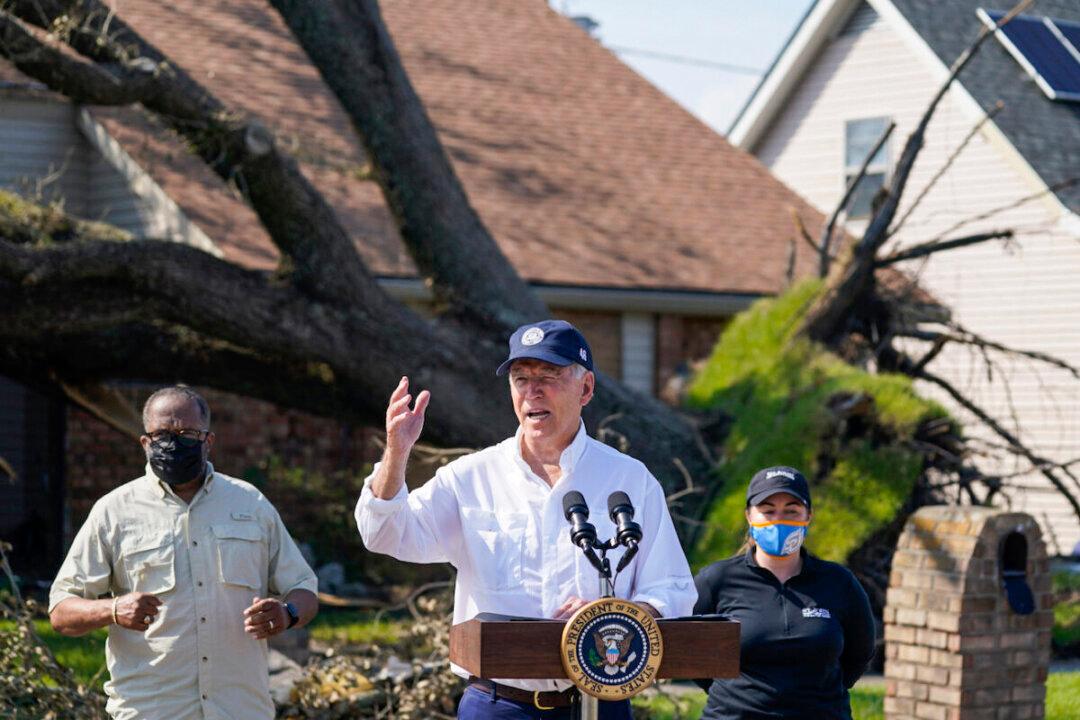President Joe Biden said Friday that his administration is pushing to boost gasoline deliveries to regions badly impacted by Hurricane Ida, where flooding, road closures, and downed power lines have led to gas shortages, leaving residents scrambling to find fuel for generators.
Biden said at a Friday press briefing in LaPlace, Louisiana, that measures to boost fuel supplies include dipping into the nation’s Strategic Petroleum Reserve (SPR) to enable refiners in the region to access the crude they need to continue operations, while providing flexibility for truck drivers to ramp up gasoline deliveries.





